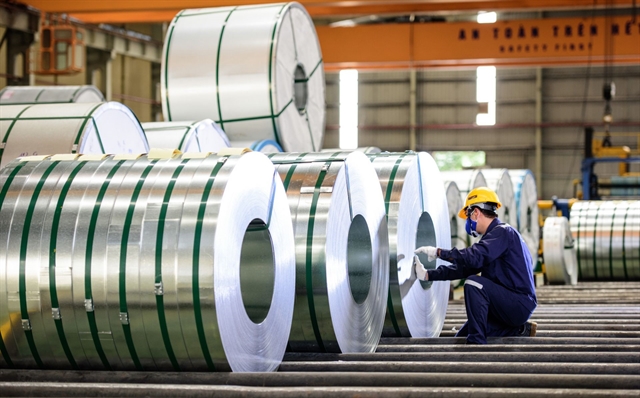The Ministry of Industry and Trade (MoIT) will continue to support domestic enterprises, especially small and medium-sized firms, to improve their awareness of trade remedies.

The Ministry of Industry and Trade (MoIT) will continue to support domestic enterprises, especially small and medium-sized firms, to improve their awareness of trade remedies.
It will provide practical lessons on handling trade defence lawsuits for local enterprises.
The ministry will also focus on training State officials, commodity associations and industries on trade remedies, especially for commodities that are regularly investigated by foreign countries such as steel, fisheries, wood and chemicals.
According to the ministry's Trade Remedies Authority of Viet Nam (TRAV), local export products have faced more anti-dumping investigations and tax evasion cases in foreign countries in recent years. Vietnamese businesses have become aware of trade remedies.
Many Vietnamese enterprises have been adapting to trade defence cases. Some have legal departments that specialise in dealing with trade remedies at foreign markets, especially in sectors producing key export products such as steel, seafood and garments.
However, according to the authority, there are still some firms, especially smaller companies, that are unaware of the importance of trade remedies and how they would affect their production and business activities.
It said in the results of trade lawsuits, local enterprises that work with foreign investigative authorities by providing information enjoy low tax rates. If local enterprises do not co-operate, they will face a high tax rate due to foreign investigative authorities using available data only, creating a disadvantage for them.
Therefore, the level of co-operation can be considered a prerequisite for achieving a positive result in trade remedies cases, according to the TRAV.
In the case of the antidumping duty (AD) and countervailing duty (CVD) investigations of imports of utility-scale wind towers from Canada, Indonesia, South Korea (AD only), and Viet Nam to the US, Viet Nam received countervailable subsidies at a rate of 2.84 per cent while Indonesia received a rate of 5.9 per cent.
Meanwhile, in the case of the anti-dumping and anti-subsidy investigation into corrosion-resistant steel sheets imported from several countries, including Viet Nam, Canada concluded Viet Nam does not subsidise enterprises producing and exporting the steel, based on information provided by the Government of Viet Nam.
According to the US Customs and Border Protection (CBP)’s announcement on February 11, 2021, there is a lack of evidence to conclude Minh Phu Corporation has illegally evaded anti-dumping duties levied on Indian shrimps.
Therefore, CBP will consider the conclusion issued on October 13, 2020, to not apply anti-dumping tax on exported shrimp of Minh Phu Seafood.
The MoIT also said that the US’s conclusion on dumping and subsidies for car tyres from Viet Nam and some other economies, which was released on December 30, declared tyre exporters of Viet Nam free from anti-dumping measures.
Other countries and territories were alleged to have dumped in the market and face tariffs of 14.24 per cent to 38.07 per cent for South Korea, 52.42 per cent to 98.44 per cent for Taiwan (China) and from 13.25 per cent to 22.21 per cent for Thailand.
It is a very positive result for Viet Nam's tyre manufacturing and exporting enterprises, said TRAV director Le Trieu Dung. However, this is only a preliminary result, the ministry and the Vietnamese manufacturing and export enterprises will continue to work with the US towards a positive final conclusion. — VNS





